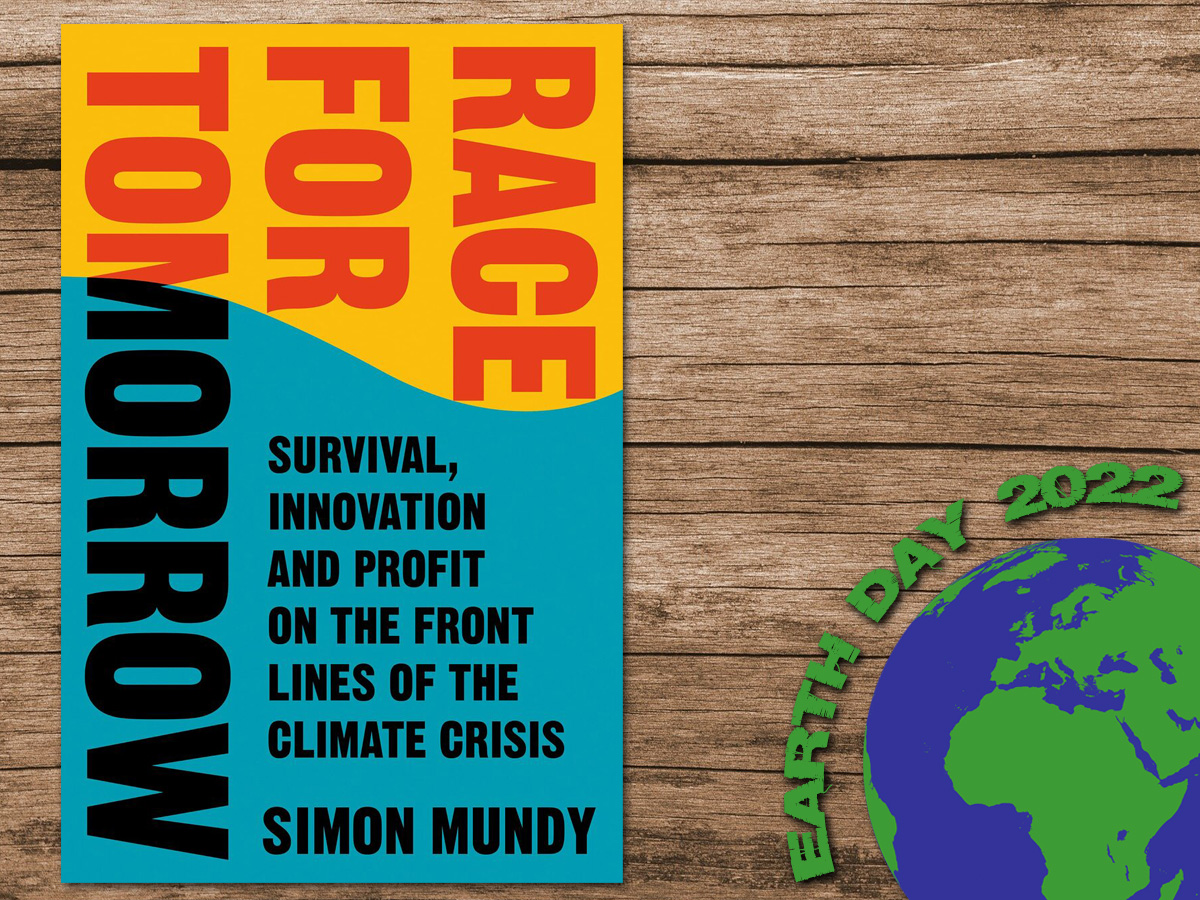Books about climate change can often be depressing to read, filled with heartbreaking and terrifying stories about the catastrophes haunting our planet’s future. Race for Tomorrow by Simon Mundy is not one of those books. Instead, this frequently uplifting book looks at the amazing projects currently taking place all over the world from Siberia to Bangladesh, Italy to Australia.
Please note: This post contains affiliate links.
To write Race for Tomorrow, journalist Simon Mundy spent two years traveling to 26 countries meeting people on the “front lines of the climate crisis.” He met with a scientist building a home for genetically engineered mammoths, the team behind a fake meat startup in Israel, and the inventor of one of China’s most popular electric cars. All their stories are different, often coming from opposing viewpoints, but all of them are caught in the same global climate change war. The innovations covered range from the technologically advanced to the simple, and the legislation is not always as simple to enact as it might seem, but we’ll need every bit of it working together if we want to make a real difference.
One thing I found eye-opening in Race for Tomorrow was the way it presented different sides to many stories. Take, for example, the chapter based in Brazil. In this chapter, we meet two men: Awapy and Enzio. Awapy is a member of the Uru-Eu-Wau-Wau, an indigenous tribe that calls the Amazon rainforest home. He has spent his life defending the land denoted by the Brazilian government as the Uru-Eu-Wau-Wau Indigenous Territory from illegal clearing, moving on from the bows and arrows used by his father to more technological solutions such as using his cell phone to take pictures of illegal tree felling and sending them to the police, forcing them to take action. On the other side of the coin is Enzio. Living in the tiny town of Boca do Acre with virtually no prospects, the author catches up with Enzio when he is illegally burning a section of the Amazon to create a clearing for cattle grazing, the only option he has to make a living. Should he be doing it? No. But if you were in his shoes, then what’s a dozen fewer trees if the other option is starving? Stories like these throw into sharp contrast how difficult the fight against climate change will be. When there are options on the table, most people will pick the more environmentally friendly choice, but when poverty is forcing their hands, who will choose a lifestyle better for the planet and see their children starve?
Politics is another key factor in the fight against and something discussed in detail in Race for Tomorrow. A section that stood out to me looked at Greenland. Rising temperatures mean that more and more of the ground there is no longer frozen, opening it up for mining ventures unthinkable just a few decades ago, and all sorts of valuable deposits have already been uncovered. It’s this untapped treasure that caused Donald Trump to make comments about buying Greenland from Denmark, but for policymakers in Greenland itself—a country with a long-term ambition of independence—the mines are opening up new economic opportunities, and the possibility of gaining that long-sought independence through new self-sustainability through trade deals with countries like China and Russia that could change the global political landscape. Meanwhile, over in the Democratic Republic of Congo mining is causing other political challenges. Many of us would be horrified to learn that the cobalt in our electric car batteries was illegally mined and possibly by children. However, the book explores the reality of the situation on the ground with the government swooping in to take land rich in cobalt from local residents and sell it to international corporations, with rampant corruption ensuring none of the profits made it back to the people forced from the villages to make way for the mines. Some residents have fought back by maintaining illegal mines underneath their own homes so as to hold onto a slice of the wealth being generated beneath their feet, and who can blame them?
Race for Tomorrow is a fascinating book filled with equally fascinating people and stories. It’s the sort of book that you’ll be thinking about for a long time after you’ve read the final page and one you’ll find yourself sharing anecdotes from during casual conversations, “well did you know that the Ganges River dam might be responsible for increased rates of miscarriage in Bangladesh?” If you only read one book about climate change this year, make it this one.
GeekMom received a copy of this title for review purposes.




